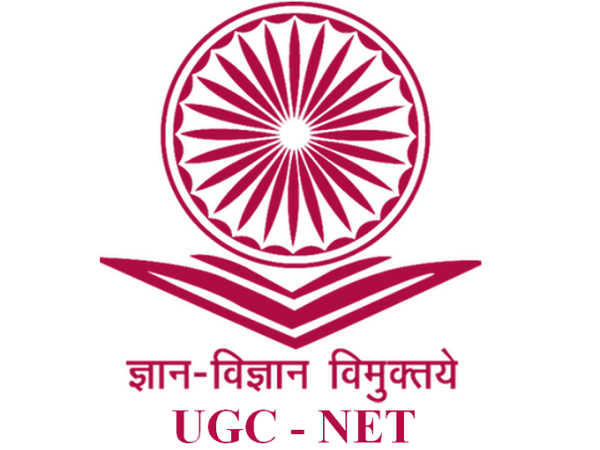The Union Public Service Commission (UPSC) exams in India are well-known for the prestige they provide and the civil service careers they offer. The unfortunate truth, though, is that many candidates fail to achieve success in UPSC examinations. Studying for the Civil Services exam inculcates numerous values vital to a prosperous professional life. There is a high level of subject expertise among the candidates who narrowly failed to pass the exam. Therefore, they have no trouble locating a position that is a good fit for their skills.
Although it may come as a surprise to some, several well-known individuals have failed the UPSC Civil Services Exam.
Among the distinguished individuals on the list are former chief executive officer Arvind Subramanium, who took the test three times but was unsuccessful, senior Indian politician Kapil Sibal, and well-known newscaster Ravish Kumar. Our president, Ram Nath Kovind, also cleared the exam but chose not to participate.
About 1.3 million students took the UPSC prelims 2023 exam, and 14,624 of them qualified for the Mains.

UPSC Pass Percentages Since 2020
- 2020:
- Applied: 1,057,948
- Appeared for Prelims: Not available
- Qualified for Mains: Not available
- Appeared for Mains: Not available
- Appeared for Interview: Not available
- Cleared the Exam: Not available
- 2021:
- Applied: 1,093,948
- Appeared for Prelims: 508,619
- Qualified for Mains: 10,000
- Appeared for Mains: Not available
- Appeared for Interview: Not available
- Cleared the Exam: 761
- 2022:
- Applied: 1,152,000
- Appeared for Prelims: Not available
- Qualified for Mains: 13,090
- Appeared for Mains: Not available
- Appeared for Interview: Not available
- Cleared the Exam: 933
The low UPSC pass percentage should not discourage those preparing diligently for the upcoming UPSC exam.
Instead, use it as motivation to enhance your performance for the UPSC Prelims exam, set to occur on 28 May 2023. In 2022, only 13090 out of 11.52 lakh candidates who applied for UPSC 2022 managed to clear the Prelims exam.
Embracing failure correctly isn't just the end; it's the start of a journey filled with lessons and resilience. This is especially true for UPSC aspirants, as failure can either stop their aspirations or become a stepping-stone to success.
The psychological impact of failure is profound and challenging, but navigating through it can be the catalyst to re-strategize and come back stronger.
On the one hand, there is fear – the fear of failing again, uncertainty about future attempts, and self-doubt that chips away at confidence. On the other hand, there is immense growth potential – providing a fresh perspective to reassess your approach.
Failure tends to strip you bare psychologically, leading to introspection and emotional growth while building the tenacity needed to clear challenging examinations like the UPSC. Failure is no longer about inability but an opportunity for revision and reinforcement.
For aspiring civil servants facing tough odds, failure can become their most powerful weapon if handled correctly.
"Remember you are NOT alone, reflect on your failures & learn from them"
How to Handle UPSC Failure
A rapidly growing number of individuals are submitting their applications to take the IAS Exam. There are numerous reasons for this, including pay raises, increased prestige and publicity, increased job stability, and so on. It is estimated that there are just about one thousand free positions available. According to various sources on UPSC, just about 0.2 percent of the candidates who submit their applications for the civil service examinations that are administered by the Union Public Service Commission (UPSC) each year are ultimately chosen for the available positions.
An essential part of getting past the emotional fallout of UPSC failure is making plans to go forward. It's important to recognize and work through these feelings. If you feel you need assistance, reach out to loved ones or experts in the field. Keep in mind that each obstacle you overcome on your way to achievement is merely a stepping stone and not the final destination.
If you do not pass the UPSC exam, take this time to think about why you did not pass. Identify your genuine interests, strengths, and passions by taking stock of yourself. Think about your goals and ideals and whether they are compatible with a career in the public sector. This time of self-reflection might point you in the direction of potential better choices.
Surrender to Your Feelings
There is no denying that failure hurts. Feelings of disappointment, sadness, or frustration are normal. To deal with setbacks healthily, it is necessary to recognize these feelings. Your unwavering commitment and enthusiasm towards your objective are evident.
Ponder and Acquire Knowledge
Think back on all the steps you took to get ready. Make a list of your strengths and areas that could use some work. The essential thing is not the failure per se but rather the wisdom you get from it that you can apply moving forward.

Sharing your emotions with trusted loved ones or adults in your life can help. This can provide a new point of view. You can get through this challenging period and get back on track with their help and advice.
Stay Optimistic and Keep Going
Keep an optimistic outlook. A setback is just a stepping stone on the road to success. Never give up; instead, see your loss as a springboard to greater success.
Success frequently comes to those who show perseverance, flexibility, and dedication to greatness despite the many challenges they face along life's winding path. Never close your eyes to the opportunities that may come your way; the most motivational tales are those who overcame adversity, grew from the experience and did great things.
Career Options after UPSC Failure
The statistics show that most people who try to get into the UPSC do not make it. There is a lot of competition, and the route is hard. Feelings of disappointment, uncertainty, and anxiety are common after failing the UPSC exam, which can be a devastating blow. Many people spend their whole lives studying for this test, which makes the prospect of failing all the more terrifying.
The fact that one can pursue a wide variety of other professions is one of the most eye-opening insights gained after failing the UPSC exam. There is more to come on your adventure. Here are a few things to think about:
- Becoming a teacher or tutor is a great way to pass on what you've learned.
- Generating Content: Look into online media such as podcasting, vlogging, or blogging.
- Being an entrepreneur is taking advantage of your passions and abilities to launch your own business.
- Corporate Sector: Use your skills to build a successful career in the business world.
- Exams for the Public Sector: Think about taking exams for jobs in banking, the State Service Commission, or state-level agencies.
Exams Similar to UPSC
When it comes to government exams, you have a lot of possibilities. Multiple tests, including state PSC, SSC, RRB, RBI, and CAPF, are available. The level of competition is lower, and the exams are somewhat easier, compared to the UPSC Civil Service Exams.
SSC CGL
When positions open up in the government, the Staff Selection Commission administers this test to find qualified candidates for such positions. There are four parts to the first level of this test: G.I. and reasoning, G.A., Q.A., and English Comprehension. Candidates who study for the UPSC also take this test, even though it is merely a portion of the UPSC Prelims. The SSC CGL is more of a timed test, but it does necessitate extensive preparation in mathematics and reasoning. To find out more, check out their website.
Bank PO
You can get an entry-level job in a bank if you pass this test. Upon successful completion of the two-year probationary period, a bank PO is normally promoted to the position of Assistant Manager. English Language, Quantitative Aptitude, and Reasoning Ability are the three main components of the curriculum.
RBI Grade B
The curriculum for the RBI Grade B test is standard fare for banking entrance exams. English Language and General Knowledge, Reasoning, and Quantitative Aptitude are the four main parts. Upon successful completion of this test, you will be assigned the position of RBI officer to one of RBI's branches. Deputy Governor is the second-highest rank after RBI Governor and can be attained by a Grade-B Officer by promotion.
State PSC
A portion of the UPSC exam curriculum is used for the majority of state Public Service Commission examinations. You should also try for the state PSC exam if you have prepared for the UPSC CSE. If you are looking for information about openings in a specific state, such as the exam pattern or curriculum, you will need to visit that state's website.
CDS
The Union Public Service Commission (UPSC) administers this test to select students for the Indian Air Force Academy, Officers Training Academy, Indian Naval Academy, and Indian Military Academy. English, General Knowledge, and Elementary Mathematics make up the three parts of the written portion of this exam.
CAPF
To fill positions in different branches of the military, the UPSC administers the CAPF exam. After being chosen, individuals will assume the role of Assistant Commandant (AC) in the military.
LIC AAO
Every year, candidates from all across the country take this test to join the Life Insurance Corporation (LIC). Assistant Administrative Officer positions are available at LIC for those who meet the requirements. The English, Arithmetic, and Reasoning portions of the curriculum are very comparable.

UGC NET
If you do well on the UGC NET exam, you will have the opportunity to become a lecturer. Candidates who meet the criteria can also apply for research grants. This test includes two parts, and both of them are multiple-choice. The official website has further information, which you can view here.
Policy Analyst
The position of policy analyst is well-suited to those who are studying for the UPSC exam. Aspirants to the UPSC may find a good fit in the policy analysis field, which is active in many think tanks, research institutions, and consulting firms.
International Relations Specialist
Think tanks, international organizations, and embassies are great places to work as an International Relations Specialist if you're interested in diplomacy, foreign policy analysis, and international relations.
Media And Journalism
Since it calls for extensive knowledge and information based on current events, a career in media and journalism is one of the best options for UPSC hopefuls. Media careers in print, television, and internet platforms include reporting, news writing, and many more.
Legal Consultant
Legal consultants counsel individuals, companies, and NGOs on legal concerns; aspirants with a strong grasp of the law and relevant experience can fill this role.
Data Analyst and Research
Job opportunities for UPSC hopefuls with an analytical mind include working with data and conducting market research or surveys of public opinion for businesses, political documentaries, and research institutes.
Résumer avec l'IA :











